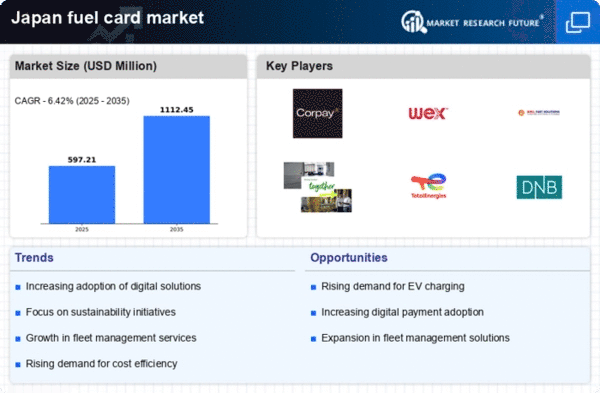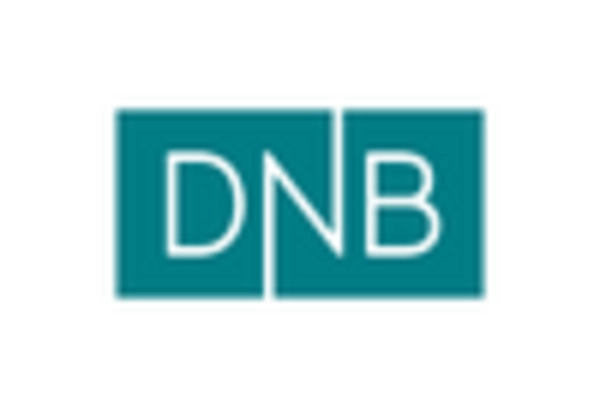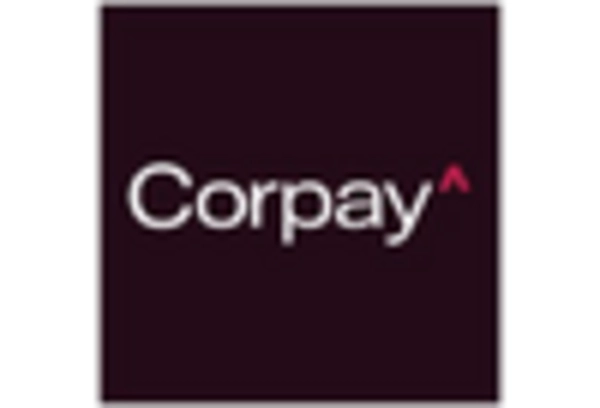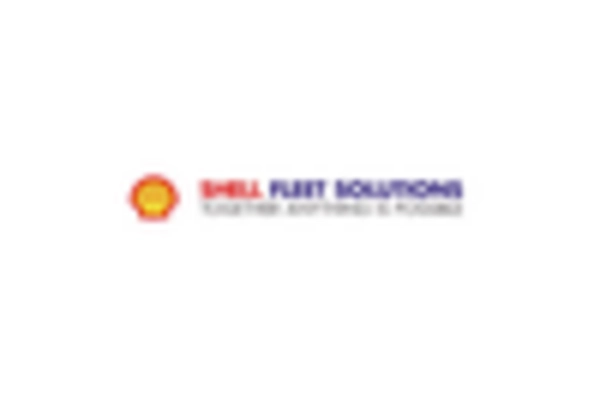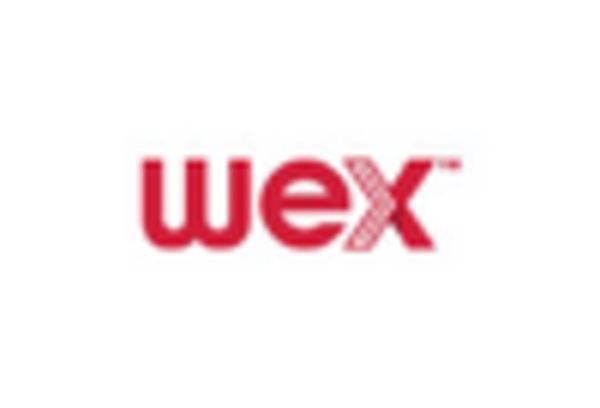Regulatory Compliance and Standards
In Japan, stringent regulations regarding fuel usage and emissions are influencing the fuel card market. The government has implemented various policies aimed at reducing carbon emissions, which necessitates compliance from businesses utilizing fuel cards. This regulatory environment encourages companies to adopt fuel cards that provide detailed reporting on fuel consumption and emissions. As a result, the demand for fuel cards that assist in meeting these compliance requirements is likely to increase. It is projected that by 2026, around 40% of businesses will prioritize fuel cards that offer enhanced reporting features to align with regulatory standards. This trend underscores the importance of compliance in shaping the fuel card market.
Rising Fuel Prices and Cost Management
The fuel card market in Japan is significantly impacted by the volatility of fuel prices. As fuel costs continue to rise, businesses are seeking ways to manage expenses effectively. Fuel cards offer a solution by providing discounts, rebates, and detailed reporting on fuel expenditures. This financial incentive is particularly appealing to fleet operators and businesses with high fuel consumption. Recent data indicates that companies utilizing fuel cards can save up to 15% on fuel costs compared to traditional payment methods. This cost-saving potential is driving the adoption of fuel cards, thereby enhancing the growth of the fuel card market. The focus on cost management is likely to remain a key driver in the coming years.
Growing Focus on Data Analytics and Insights
The fuel card market in Japan is evolving with a growing emphasis on data analytics and insights. Businesses are increasingly recognizing the value of data derived from fuel card transactions, which can provide critical information on fuel consumption patterns and operational efficiencies. Fuel card providers are enhancing their offerings by integrating advanced analytics tools that allow users to gain actionable insights. This trend is expected to drive the adoption of fuel cards among companies looking to optimize their fuel management strategies. By 2026, it is anticipated that around 35% of fuel card users will leverage data analytics to inform their decision-making processes. This focus on data-driven strategies is likely to play a pivotal role in the future of the fuel card market.
Technological Advancements in Fleet Management
The fuel card market in Japan is experiencing a notable shift due to advancements in fleet management technologies. These innovations facilitate real-time tracking and monitoring of fuel consumption, which enhances operational efficiency. Companies are increasingly adopting telematics systems that integrate with fuel cards, allowing for better data analysis and reporting. This integration not only streamlines fuel management but also aids in reducing operational costs. As of 2025, it is estimated that approximately 30% of fleet operators in Japan utilize such technologies, indicating a growing trend towards digital solutions in the fuel card market. The ability to analyze fuel usage patterns can lead to more informed decision-making, ultimately benefiting the fuel card market.
Increased Demand for Contactless Payment Solutions
The fuel card market in Japan is witnessing a surge in demand for contactless payment solutions. As consumers and businesses alike prioritize convenience and speed in transactions, fuel cards that offer contactless capabilities are becoming increasingly popular. This trend is particularly relevant in urban areas where quick refueling is essential for fleet operations. The adoption of contactless technology not only enhances the user experience but also aligns with the broader shift towards digital payment methods. It is estimated that by 2025, approximately 50% of fuel card transactions in Japan will be conducted via contactless payment systems. This shift is likely to reshape the fuel card market, making it more accessible and efficient for users.

